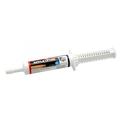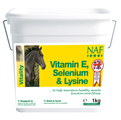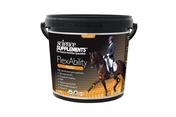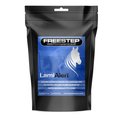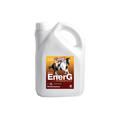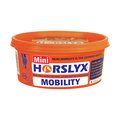Seeing your horse every day can sometimes make it hard to notice when their weight fluctuates. Whether they’re gaining weight or losing it, it is important to work with your vet to establish the reason why and work out the best course of action.
Maintaining a healthy body weight comes down to the right diet, regular (but suitable) exercise, and good health practices like effective worm management.
Weighing your horse
In the absence of a weighbridge, a weigh tape is the next best thing and an essential tool for your tack box. Used regularly, it can help you monitor your horse’s weight and be more accurate with your feeding.
The formula for working out your horse’s weight in lbs is below:
(girth x girth) x body length / 330.
To work out the girth measurement, take a measuring tape and measure around the midsection, just behind the withers and front legs.
To work out the length measurement, measure in a straight line from the point of the shoulder to the point of the croup.
When you’ve done your calculation, you can determine whether your horse is within a healthy weight range for its age and breed. If you have concerns about your horse’s body condition score after doing this, your vet is the best person to speak to as they may want to conduct further tests.
Reasons for low body weight:
- Old age
- Parasites
- Dental disease
- Overwork
- Insufficient or unbalanced feed
- Genetics
- Health problems and chronic pain/hormonal imbalances
Reasons for excess body weight:
- Insufficient exercise
- Boredom
- Overfeeding or unbalanced feed
- Genetics
- Health problems/hormonal imbalances
As for most species, being overweight or underweight can be equally dangerous, so it is important to monitor your horse and adapt your routines and care where needed.
Good doers may benefit from less turnout time and restricted calorie intake, as well as increased exercise, while underweight equines may need their teeth looking at and worm counts conducted. If health problems are ruled out, then supplements geared at building muscle and bulk should be researched. It may even be prudent to seek the help of an equine nutritionist to work alongside your vet.
[Note: if your horse undergoes rapid weight changes that don’t appear gradually, it is vital that you seek veterinary help as soon as possible].
Written by: Abi




